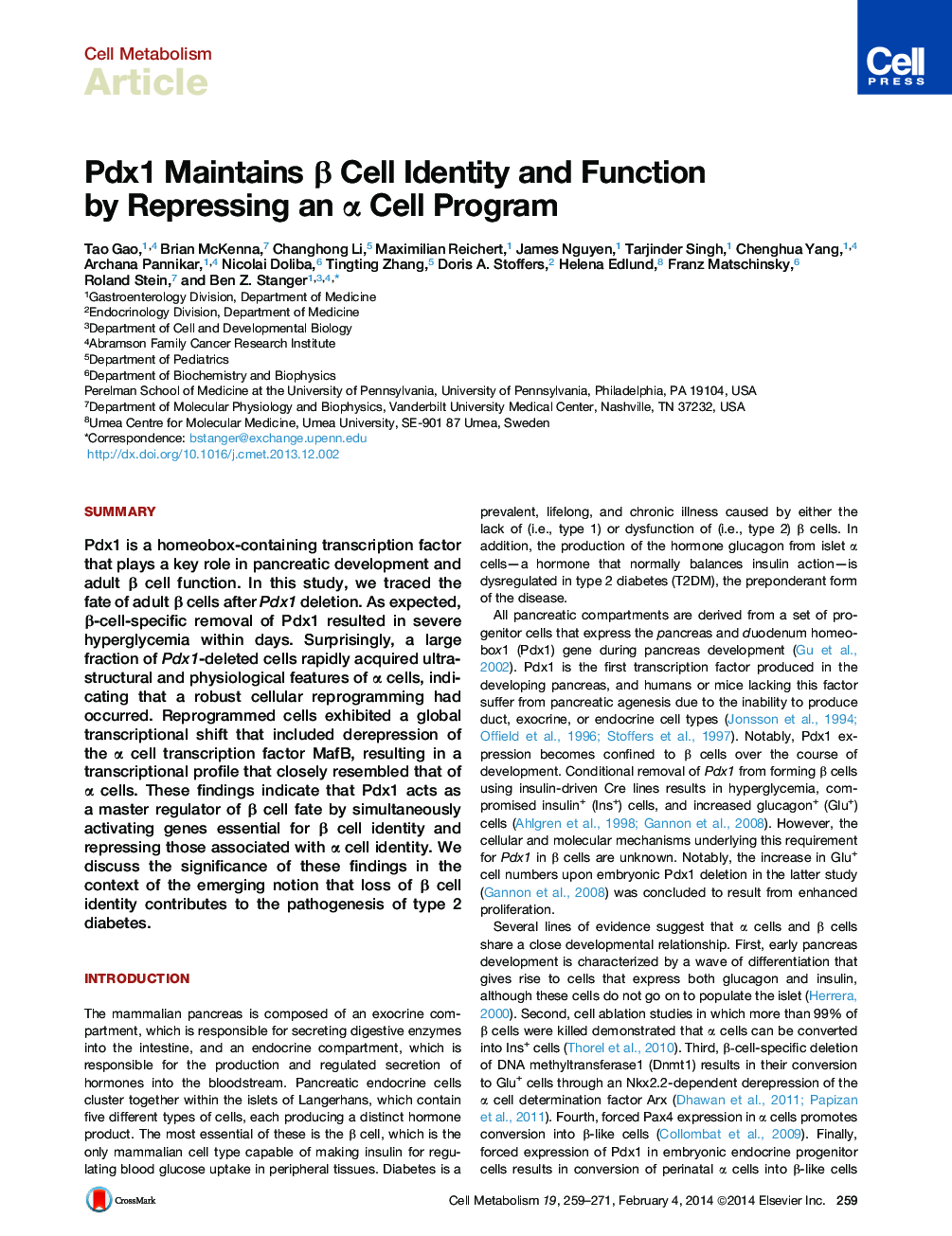| کد مقاله | کد نشریه | سال انتشار | مقاله انگلیسی | نسخه تمام متن |
|---|---|---|---|---|
| 2792687 | 1155077 | 2014 | 13 صفحه PDF | دانلود رایگان |

• Islet β cells survive after Pdx1 deletion and undergo β-to-α-cell reprogramming
• Reprogramming involves transcriptional, ultrastructural, and physiological changes
• Pdx1 binds to, and represses, the MafB promoter
• Derepression of MafB following Pdx1 deletion contributes to reprogramming
SummaryPdx1 is a homeobox-containing transcription factor that plays a key role in pancreatic development and adult β cell function. In this study, we traced the fate of adult β cells after Pdx1 deletion. As expected, β-cell-specific removal of Pdx1 resulted in severe hyperglycemia within days. Surprisingly, a large fraction of Pdx1-deleted cells rapidly acquired ultrastructural and physiological features of α cells, indicating that a robust cellular reprogramming had occurred. Reprogrammed cells exhibited a global transcriptional shift that included derepression of the α cell transcription factor MafB, resulting in a transcriptional profile that closely resembled that of α cells. These findings indicate that Pdx1 acts as a master regulator of β cell fate by simultaneously activating genes essential for β cell identity and repressing those associated with α cell identity. We discuss the significance of these findings in the context of the emerging notion that loss of β cell identity contributes to the pathogenesis of type 2 diabetes.
Graphical AbstractFigure optionsDownload high-quality image (145 K)Download as PowerPoint slide
Journal: - Volume 19, Issue 2, 4 February 2014, Pages 259–271